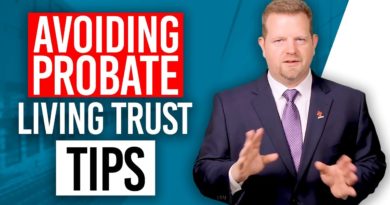Things to Consider Before Adding Your Adult Child to the Deed to Your Home
Navigating the decision of whether to include your adult child on the deed to your home is a significant aspect of planning for the complexities of aging and securing the future of your assets. Among these assets, your home holds immense value, both financially and sentimentally, making it a focal point of your estate planning considerations. While the idea of ensuring your child inherits your home might seem straightforward by adding them as a co-owner now, there are several important factors to consider before proceeding. With that in mind, the Indianapolis attorneys at Frank & Kraft point out things to consider before adding your adult child to the deed to your home.
Should I Add My Adult Child to the Deed to My Home?
For most people, purchasing a home is the biggest and most meaningful financial transaction they will make during their lifetime. Your home has likely been part of your identity and the center of your family for as long as you have owned the home. As you start to age, however, you begin to consider what will happen to your home when you pass away. If you feel strongly that the home should be passed down to an adult child, you might think that adding that child’s name to the deed (or other ownership instrument) is the simplest way to accomplish that goal. While you can ensure a quick and simple transfer of your ownership interest in the home to your child after your death through creating the right type of joint ownership, there are a few things to consider before deciding to take that route, such as:
- Legal Implications of Divorce: The act of adding your child to the deed transforms them into a co-owner, subjecting their share of the property to potential division in the event of a divorce. This differs significantly from the protection offered by an outright inheritance, where the home would typically remain separate property and insulated from divorce settlements.
- Medicaid Eligibility: Medicaid, a crucial program for long-term care, may view the addition of your child to the deed as a transfer of assets. Such a transfer could impact your eligibility for benefits within a five-year period. Proper estate planning strategies can help safeguard your home and preserve your eligibility for vital assistance programs, including Medicaid.
- Debt Concerns: Introducing your child as a co-owner opens the door for their financial liabilities to affect your property. Should your child incur debts, creditors could place liens on the home to settle those obligations, posing a significant risk to your financial security and peace of mind.
- Tax Ramifications: The decision to transfer partial ownership of your home to your child while you are alive can carry substantial tax implications, particularly concerning capital gains. By adding your child to the deed during your lifetime, they inherit your basis in the property, potentially leading to higher tax liability if your child ever sells the home. Conversely, your child could gain tax benefits through a stepped-up basis that would apply if the home was inherited from you after your death, ultimately resulting in a lower tax burden and preserving more of your legacy for future generations.
- Loss of Control: Co-ownership entails relinquishing control over significant decisions regarding the property without your child’s consent. This loss of autonomy, even within a strong parent-child relationship, can lead to conflicts or complications regarding refinancing, selling, or making alterations to the home.
While the initial appeal of adding your adult child to the deed may seem compelling, it is essential to carefully weigh both the short-term and long-term implications of such a decision and to discuss your options with your estate planning attorney before moving forward.
Do You Have Additional Questions about How to Pass Down Your Home?
For more information, please join us for an upcoming FREE seminar. If you have additional questions about whether you should add your adult child to the deed to your home, contact the experienced Indianapolis estate planning attorneys at Frank & Kraft by calling (317) 684-1100 to schedule an appointment.
Paul Kraft is Co-Founder and the senior Principal of Frank & Kraft, one of the leading law firms in Indiana in the area of estate planning as well as business and tax planning.
Mr. Kraft assists clients primarily in the areas of estate planning and administration, Medicaid planning, federal and state taxation, real estate and corporate law, bringing the added perspective of an accounting background to his work.
Latest posts by Paul A. Kraft, Estate Planning Attorney (see all)







